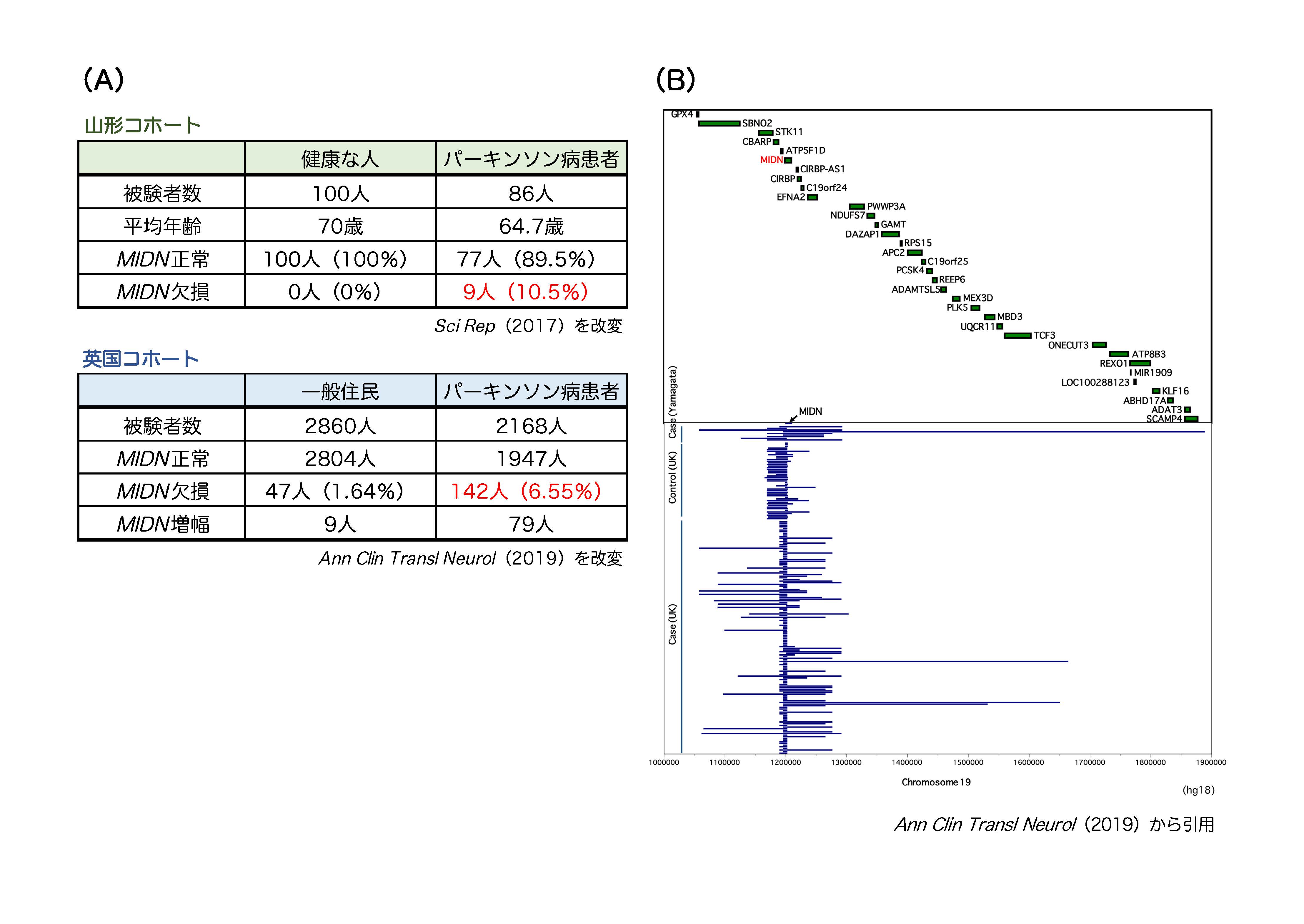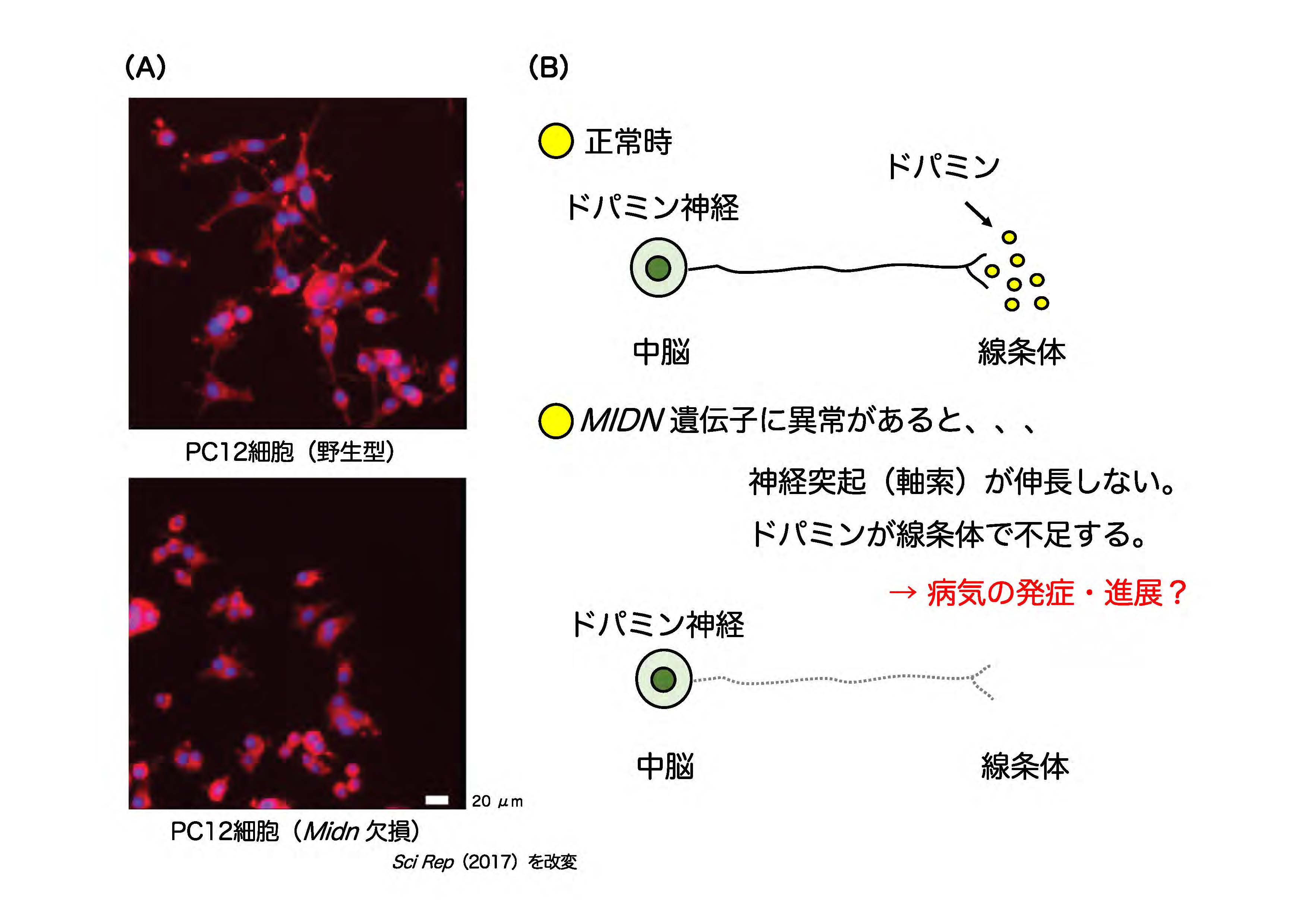







Home > Research > Research Overview > 2023 > Faculty of Medicine 2
Professor, Faculty of Medicine (Department of Pharmacology)
OBARA Yutaro
Parkinson’s disease is an intractable neurodegenerative disorder that affects 1 to 1.8 out of every 1,000 people and about 1 out of every 100 elderly people in Japan. Various motor symptoms develop as a result of the gradual death of dopamine neurons in the midbrain. Although more than 20 causative genes have been found to date, nearly 90% of patients are sporadic (non-hereditary), and the underlying cause of the disease is not well understood.
In collaboration with the Department of Internal Medicine III, we conducted a genetic analysis of patients in the prefecture. As a result, we found that the gene Midnolin (MIDN) was normal in 100 healthy individuals, but we found the MIDN gene to be defective in 10.5% of patients. Abnormalities in this gene were also found in 6.55% of patients in the UK. We now know that artificially disrupting the MIDN gene in neurons and mice inhibits neurite outgrowth. In the future, we would be pleased to be able to elucidate the function and role of MIDN and to develop a drug that can further enhance its function.

▲Figure 1: (A) Results of a genetic analysis of patients with Parkinson’s disease in Yamagata and UK. The MIDN deletion rate was significantly higher in PD patients than in control. Although MIDN multiplication was observed in UK cohort, the multiplication was not entire but segmental region of MIDN in most cases, assuming that the MIDN with segmental multiplication is not functional. (B) Genomic location of MIDN deletions identified in Yamagata and British cohorts is shown in the figure.

▲Figure 2: The speculative pathogenesis of Parkinson’s disease due to MIDN gene abnormalities. (A) Neurite outgrowth was promoted by NGF in wild-type PC12 cells, but not in the cells which lack MIDN gene. (B) Dopaminergic neurons in midbrain substantia nigra project toward striatum and secrete dopamine. On the other hand, in case of MIDN loss, the dopamine amount in the striatum is deficient as a result of inhibition of the neuronal projection, resulting in pathogenesis and progression of PD.
Related Links